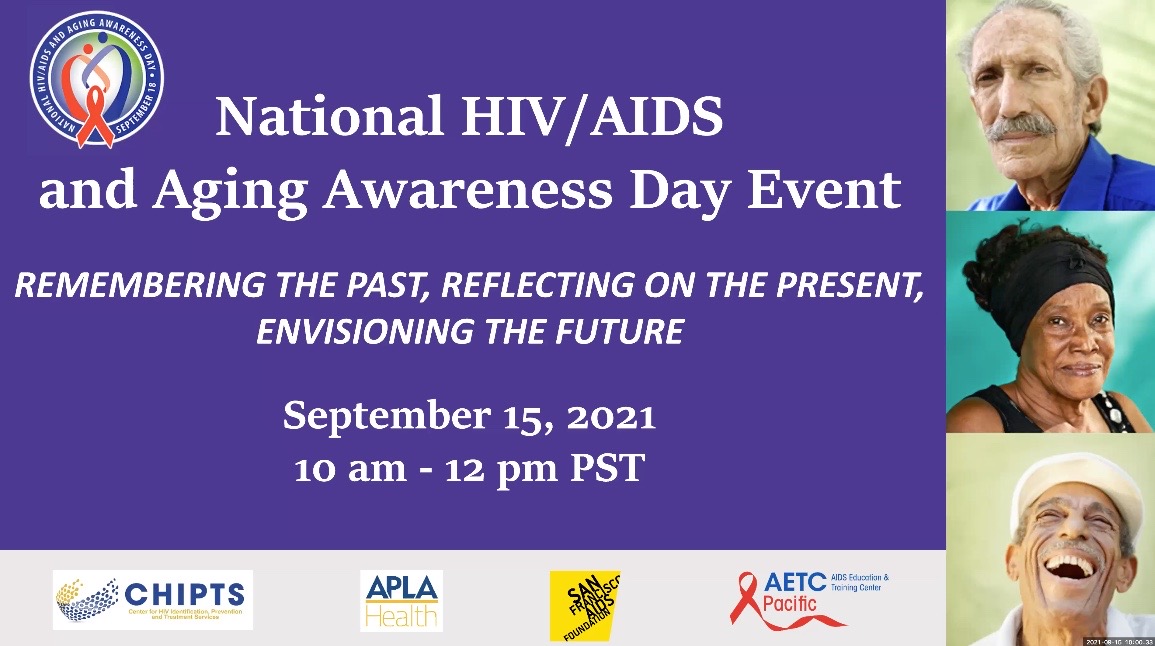Pacific AIDS Education & Training Center
By the end of this training, participants will be able to:
- Identify general and tailored benefits, policies, and programs that support older adults with HIV in California.
- Explain how Medicare and Medi-Cal programs can benefit older adults with HIV in California in 2022.
- Describe how to connect older clients with HIV in California to the benefits that will help meet their unique needs.
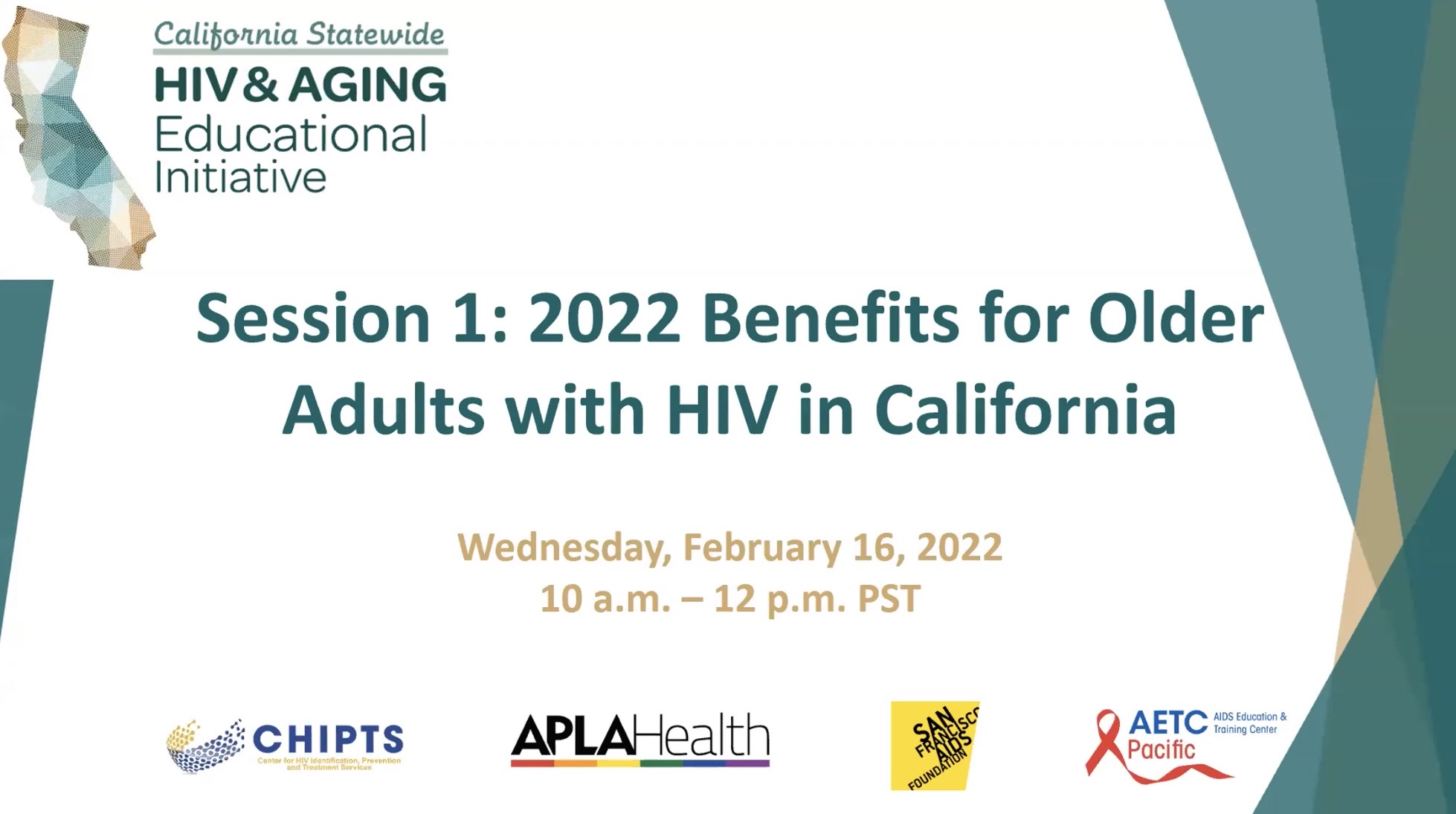
By the end of this training, participants will be able to:
- Describe the current housing landscape and barriers faced by older adults with HIV in California.
- Identify at least one of the general and tailored federal and state housing and rental assistance programs that support older adults with HIV.
- Explain how to connect older clients with HIV in California to the housing programs and services that will help meet their unique needs.
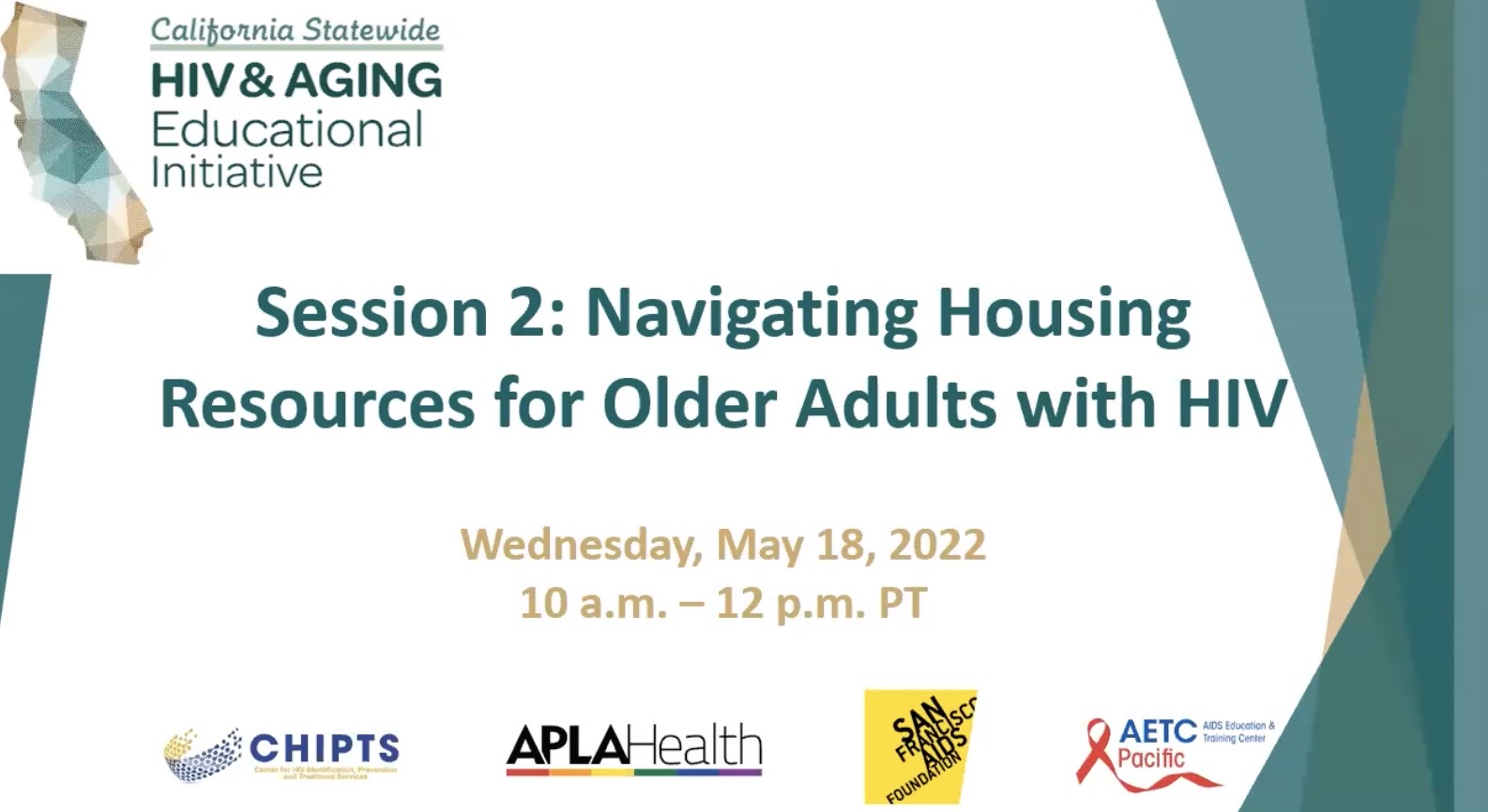
By the end of this training, participants will be able to:
- Describe the state of oral health among older adults with HIV in California.
- Identify primary signs of oral disease among older adults with HIV in California.
- Explain how to connect older clients with HIV in California to the dental programs and services that will help meet their oral health needs.
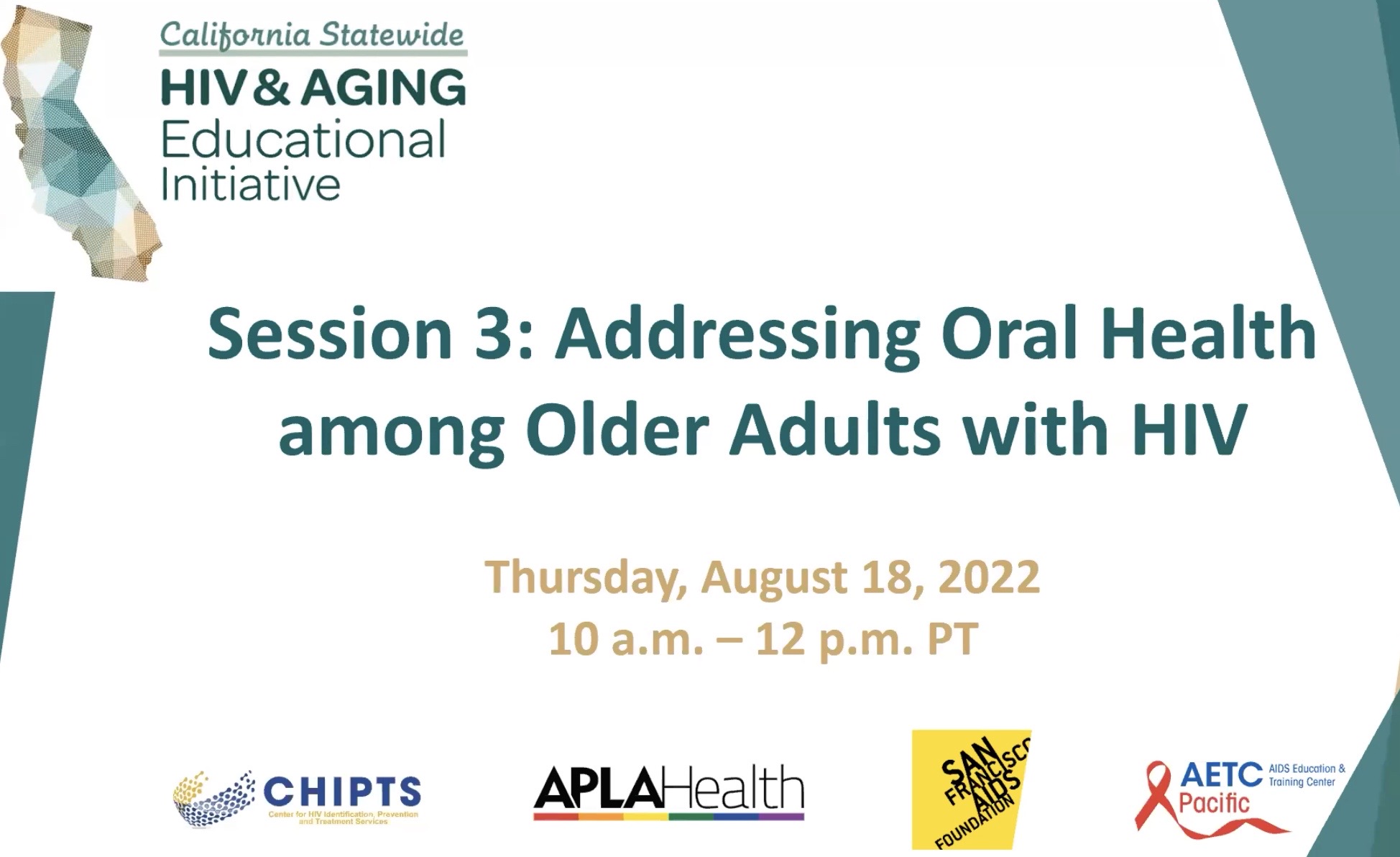
By the end of this training, participants will be able to:
- Describe at least two mental health concerns commonly experienced by older adults with HIV in California.
- Explain at least one effective strategy to help address mental health concerns among older adults with HIV in California.
- Identify at least one resource available to help support older adults with HIV in California to access mental health services.
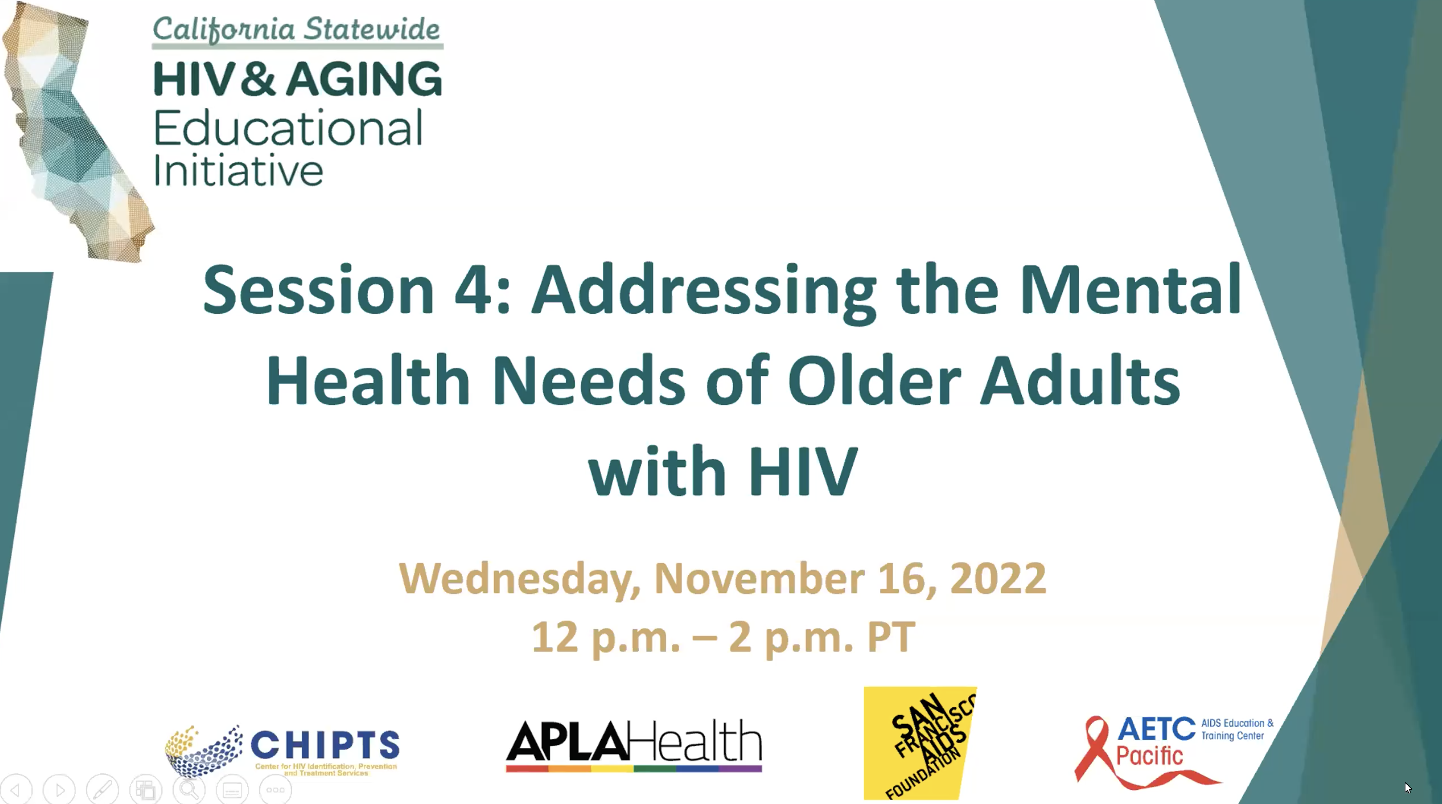
By the end of this training, participants will be able to:
- Describe current epidemiological trends in HIV and aging.
- Discuss the lived experiences of older adults with HIV in CA.
- Identify service provider strategies to help ensure older adults with HIV in CA have the support they need to thrive.
